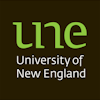|
This time of year, many Australians are kicking back on a beach, soaking up the last lazy holiday moments before normal life resumes. But even an innocent visit to the beach, it seems, is not immune to controversy.
Debate erupted this week over the growing number of beach tents, or “cabanas”, proliferating on Australian beaches. Prime Minister Anthony Albanese weighed in, declaring it was “not on” for beachgoers to erect a cabana, then leave it vacant for hours. Others say cabanas are an eyesore or obstruct the views of lifeguards.
Samuel Cornell, a member of the UNSW Beach Safety Research Group, offers five tips to strike the right balance between personal convenience and public safety when using a cabana.
On the topic of beaches, Nathan Brooks English and Robert Muir
urge us not to take seashells home (as many of us do) because they provide important shelter and other benefits for marine wildlife.
“Taking that beautiful snail shell could increase the cost of housing for a hermit crab or the small shrimp that needs it next,” they write. “The beautiful conch shell that calls to you is actually an octopus caravan.”
And if you’ve ever wondered about the colourful, iconic beach shacks that line our shores, Anna Clark unpacks their complex history.
Due to their isolation, these shacks are now sometimes seen as privileged spaces. But as Clark writes, many were once the homes of marginalised people pushed to the fringes of society after colonisation.
|

|
Nicole Hasham
Energy + Environment Editor
|
|

Nathan Brooks English, CQUniversity Australia; Robert Muir, Indigenous Knowledge
Taking that beautiful snail shell could increase the cost of housing for a hermit crab or small shrimp that needs it next. The beautiful conch shell that calls to you is actually an octopus caravan.
|

Anna Clark, University of Technology Sydney
Beach shacks have long been isolated and precarious. What we find charming today was once considered ‘fringe-dwelling’, separated from cities along racial and economic lines.
|

Samuel Cornell, UNSW Sydney
Beach cabanas serve a valid purpose. But make sure you use them carefully and responsibly, so everyone’s day at the beach is safe and enjoyable.
|
Best reads this week
|

Susan Stone, University of South Australia; Jonathan Boymal, RMIT University
Spoiler: it’s tricky. Common valuation approaches run into hurdles when dealing with something as complex as an entire economy.
|

Howard Manns, Monash University; Kate Burridge, Monash University
Yes, some slang certainly makes its way across the Pacific. But the history between the two versions of the English language is more complex than you might think.
|

Caroline Spry, La Trobe University; Allan Wandin, Indigenous Knowledge; Bobby Mullins, Indigenous Knowledge; Ron Jones, Indigenous Knowledge
Archaeologists and Wurundjeri Woi-wurrung people are shedding new light on a series of enigmatic earth rings located in southeastern Australia.
|

Rossana Ruggeri, The University of Queensland
A new study on exploding stars has provided the first evidence for an alternative model of the universe, known as Timescape.
|

Lorinda Cramer, Deakin University
Unsuitable reveals the power of dress to shape the lives of those who wear it – and to challenge, provoke and bring people together along the way.
|

Daniel O'Brien, University of Essex
Full of high-octane visual thrills, Better Man’s seemingly bizarre choice to represent Williams as a chimp actually works rather well.
|

Lucinda Aulsebrook, James Cook University
A variety of species across the animal kingdom can reproduce both sexually and asexually, including some types of starfish, water fleas, hammerhead sharks and Komodo dragons.
|
TC Weekly podcast
|

Gemma Ware, The Conversation
Plastic waste expert Mark Miodowonik explains the history of plastic and why he believes manufacturers must be responsible for making sure plastic is recycled.
|
Our most-read article this week
|

Frank Bongiorno, Australian National University
Gaffes are littered throughout Australia political history, some with more serious consequences than others. They all shape our politics, for better and worse.
|
In case you missed this week's big stories
|
-
David Bowman, University of Tasmania
We knew this would happen eventually. We have moved from possible futures to these things now happening. The deferment has ended.
-
Blayne Haggart, Brock University
Dealing with an incendiary Donald Trump requires looking back on history and a degree of strategic thought that is currently hard to find in Canada’s federal and provincial capitals.
-
Ned Watt, Queensland University of Technology; Michelle Riedlinger, Queensland University of Technology; Silvia Montaña-Niño, The University of Melbourne
Numerous studies have shown that fact checking has helped reduce the spread of misinformation and disinformation online.
-
Andrew King, The University of Melbourne; Kimberley Reid, The University of Melbourne
Reports of a rare summer La Niña are premature. It is also foolish to look at such climate drivers in isolation. But seasonal forecasting is becoming more complicated as the planet warms.
-
Ming Pan, University of California, San Diego
The state is seeing a sharp water divide this year, with lots of rain in the north while the south has stayed dry. A hydrologist explains what’s happening.
-
Stefan Wolff, University of Birmingham
Trump’s bid to buy Greenland is partly based on security concerns about Chinese and Russian access to the Arctic.
-
Andrea Jean Baker, Monash University
Five Australians were nominated for Golden Globes: three for motion pictures and two in television.
|
|
| |
|
|
|
Creative Australia
Sydney NSW, Australia
•
Full Time
|

|
|
|
|
| |
| |

|
| |
| |
| |
Featured Events, Courses & Podcasts
|
View all
|
|
30 January 2025
•
Armidale
|

|
30 January - 28 February 2025
•
|

|
4 February 2025
•
Camperdown
|

|
|
|

|
|
|
|
| |
| |
| |
| |
| |
|
|